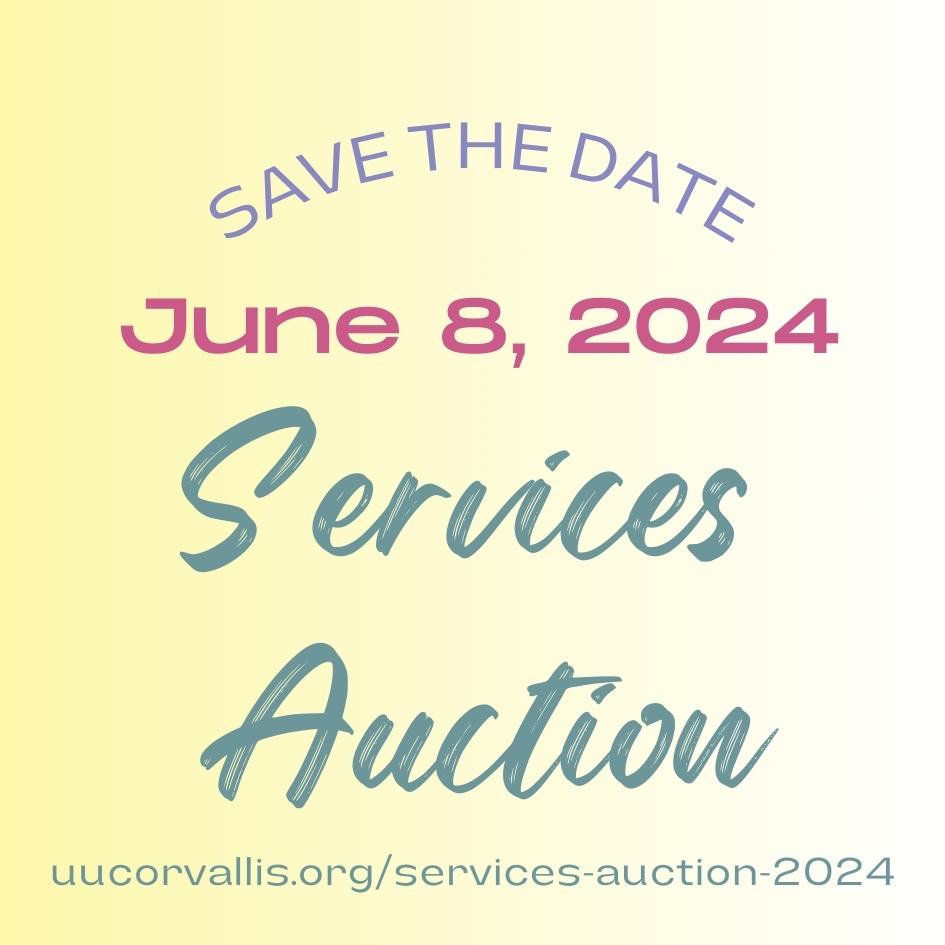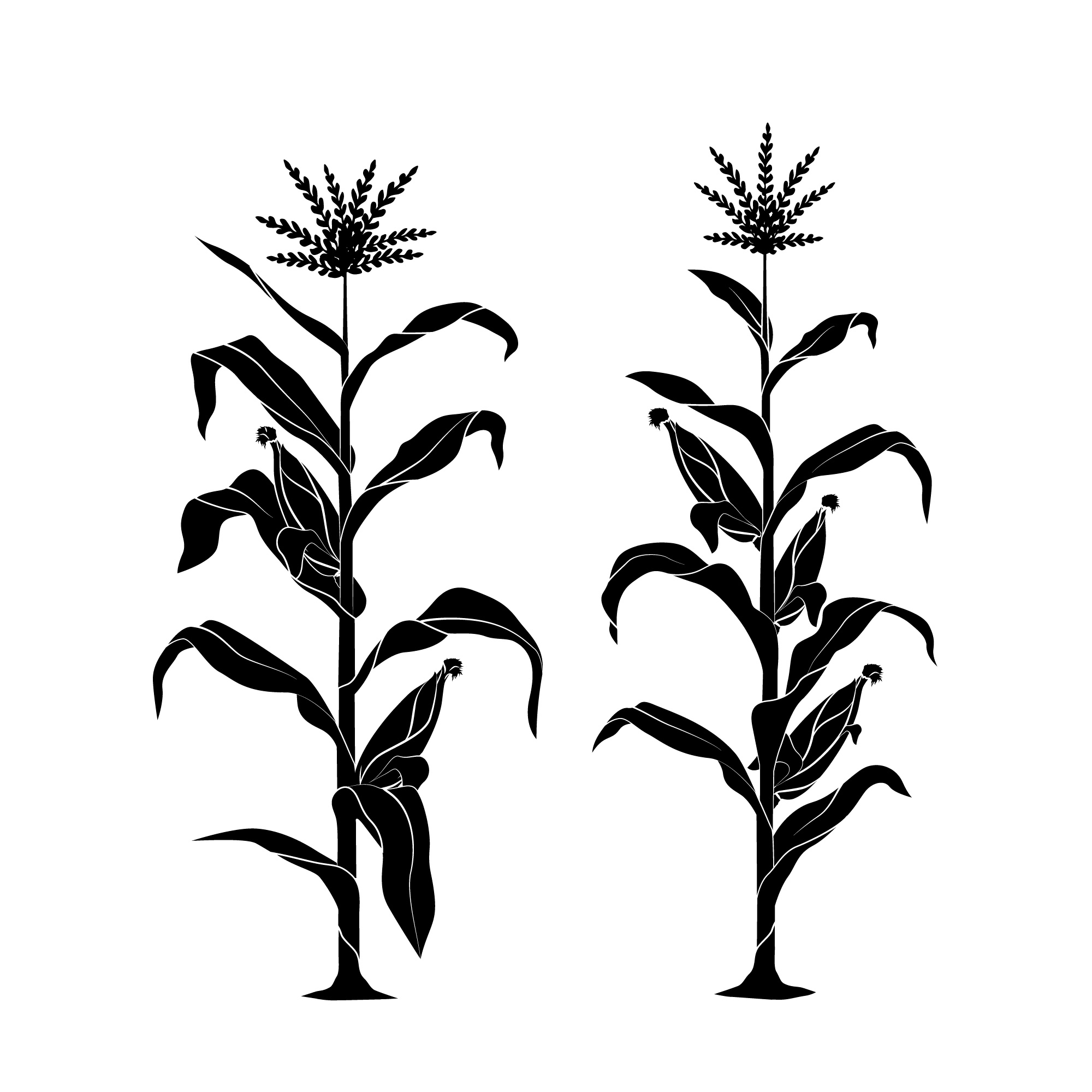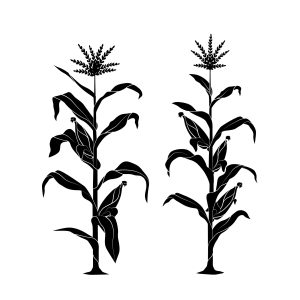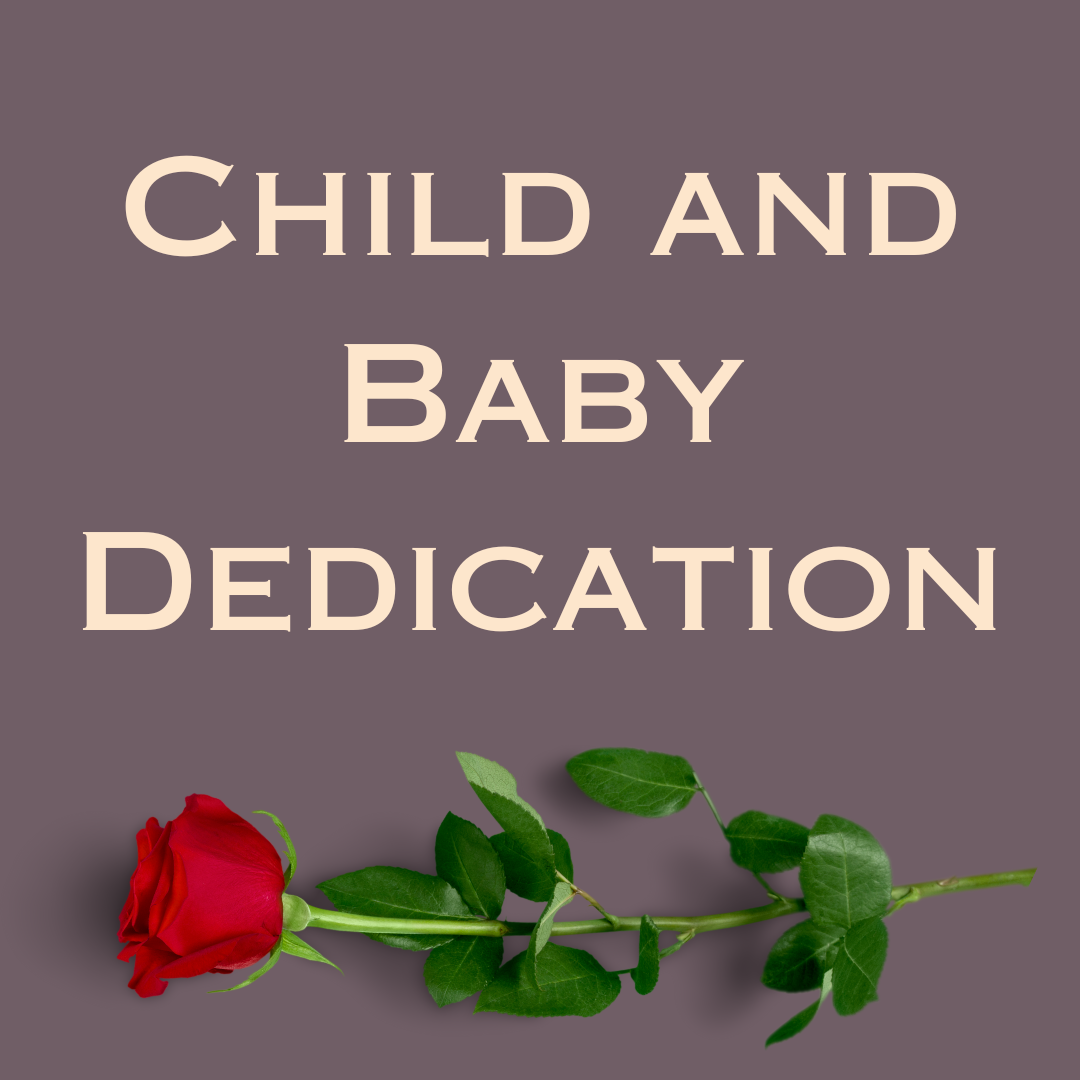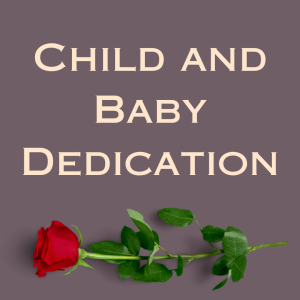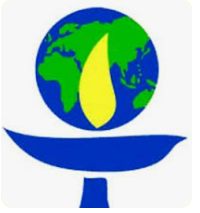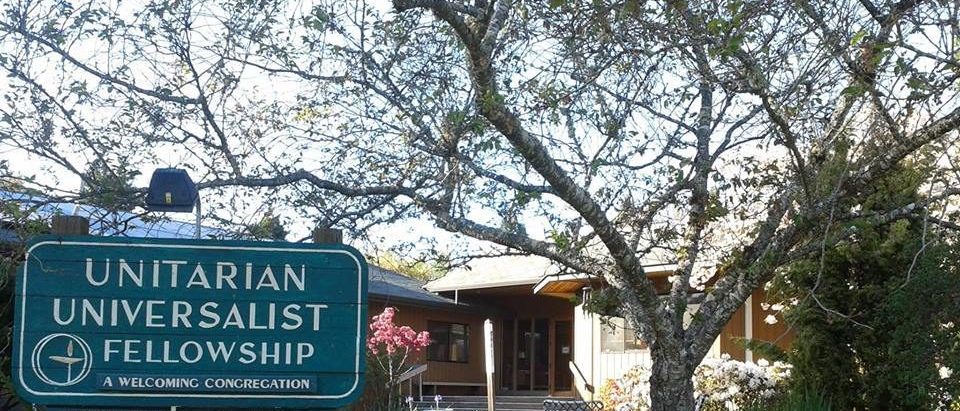Online Silent Auction – Wednesday, May 29 – June 5 at 5:00 pm
Live Auction with Silent Auction Tables – Saturday, June 8
- Doors open at 5:30 – Registration, pick up your dinner salad, strawberry desserts, and drinks
- Socialize and bid on silent auction items 5:30 – 7:00
- Live auction begins – with HOOPLA! 7:00 p.m.
We want EVERYONE to have a chance to enjoy the camaraderie and excitement of our annual Goods & Services Auction, whether or not you are able to attend on June 8. So, the 2024 Auction Planning Team has split the Auction into three parts:
- The Online Silent Auction – Wednesday, May 29, 8:00 am through
Wednesday, June 5, 5:00 pm. Can’t come to UUFC on June 8? You’ll still be
able to bid online for some fine items and services, and help fund our
Fellowship at the same time.
- The Silent Auction Tables – Saturday, June 8, 5:30-7:00. A limited number
of items will be available to bid on and take home that night, especially
items such as cakes, pies, plants, bouquets, gift baskets, and arts and crafts.
- The Live Auction – Saturday, June 8, 7:00-8:30 pm. Our Auctioneer John
Bailey will entice you to bid high on 30 spectacular service items. Raise your
paddles and let the fun begin!
Request Childcare: In an effort to make the Services Auction a family friendly event, we want to offer childcare during the Live Auction. However, we need to know how many children to plan for and get some additional information about those youngsters from you. Please complete the short Google form before May 19 to allow time to recruit the appropriate, back-ground checked people to watch over your small humans.
Volunteer to Help
The annual UUFC Services Auction is a wonderful way to build community while giving back to UUFC. Many people are needed to make this event a success! We have a variety of jobs, something for everyone!
Donate Services or Goods
Will you donate a popular service item that we can enjoy haggling over in the Live Auction? Or perhaps you will bake a cake or pie, bring a plant, bouquet, gift basket, an art/craft item that some lucky person will win at the Silent Auction table. Or maybe you have a new or like-new item that someone else would love. Some donations will be split between the Online Auction (May 29 – June 5) and the Silent Auction tables (June 8) so that everyone has a chance to participate.
Suggested Auction events and services
Here are some possible services or events. Mix and match and consider your special interests and you will come up with something unique. Please donate. It’s fun, we build community, get to know others, and our work benefits the UUFC.
ESCAPES: Time at your vacation beach house or cottage
WORK FOR HIRE: Yard work. Handy-person tasks. Architectural or landscape
design. Garden planning. Help in organizing kitchen, closets, garage. Car washing, car detailing, carpentry, gift baskets
OUTINGS: Winery/brewery visits. Boat/kayak/canoe trips. Bird watching. A day at the coast.
PARTIES WITH THEMES: Mystery dinner. Academy awards party. Las Vegas night.
GET-TOGETHERS: Tea or wine tasting. Poetry and snacks. Hikes with picnic. Sing-alongs. Karaoke night. Walking tour. Mexican train dominos.
SHARED MEALS: Ethnic dinners. Vegan, Paleo, Keto dinners. Fondue party. Meal and movie night. Salad sampler luncheon.
DELIVERED MEALS: Dinner for 2-4 delivered. Quart of soup for X months. Dessert per month for X months. Home-baked bread.
LESSONS: “Play with clay” day. Cake decorating. Greeting card making. Computer lessons. Music lessons. Dance lessons/party (tango, salsa, line dancing, belly dancing).
PERSONAL SERVICES: Shopping or “taxi” service. Massage. Astrology. Ancestry help. Made-to-order socks, scarf, mittens, hat, jewelry. Personalized song, poem, or limerick.
FAMILY FRIENDLY IDEAS: Children’s sewing project. Cooking class. Pizza or pasta making party. Tie dye party. Scavenger hunt. Child’s birthday party. Kid’s dress up party. Outdoor movie night. Math tutoring.

